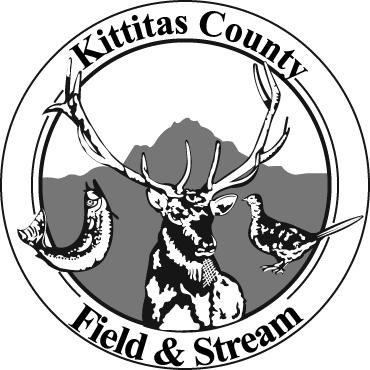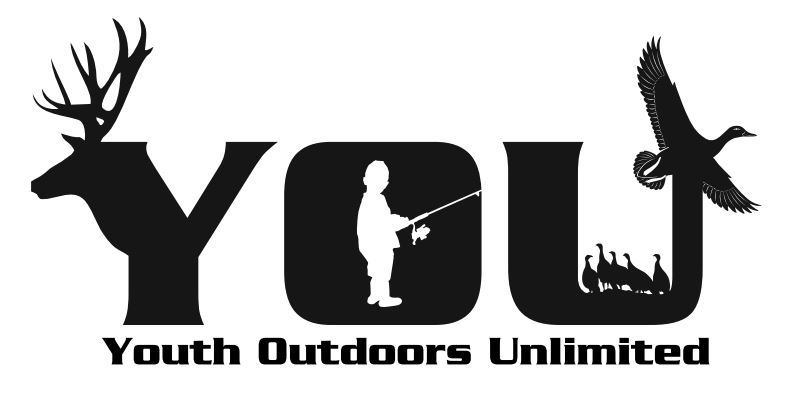Buckle up. We are now one week away from Free Fishing Weekend.
This is important, because on June 6 and 7, no license will be required to fish or shellfish in any open waters in the state. Nor will vehicle use permits be required during the weekend to park at DFW’s water-access sites. Other rules, however (size limits, bag limits, season closures and so on), will still be in effect. License or not, you will still be required to have and fill in a catch record card for any salmon, steelhead, sturgeon or halibut caught on that weekend. Not a big deal, really; the cards and fishing rules pamphlets are available free at sporting goods stores and license dealers. The rules are also available online at wdfw.wa.gov/fish/regs/fishregs.htm.
The most significant thing about Free Fishing Weekend is that Saturday is traditionally the day for two long-standing kids’ fishing derbies in Kittitas County.
The Kiwanis Kids Free Fishing Derby (from 10:00 ‘til Noon) happens at North Fio Rito Lake. There, you will find abundant prizes, fun and laughter for kids 14 and under – and a pretty enjoyable morning for the adults who bring them. Dale Defoor has been managing this event for the Kiwanis for a number of years, and will gladly share details at 509-929-0449.
For an Upper County kid adventure, it will be hard to beat the Annual Easton Kids Fishing Derby (also 14 and under) at Lavender Lake, sponsored by Cle Elum Ranger District and Cascade Field and Stream. Registration starts at 6:30 Saturday morning, and the fun part runs until it is over. (Lavender Lake is that lake right at exit 74.) At this derby, prizes will be awarded in age groups, and participating in activities at five stations – ranging from fish anatomy to habitat – will get kids into a free raffle for more prizes. Find out more from Mark Bennett at 509-670-1464.
I occasionally have a moment of great inner struggle over kids and fishing and fishing derbies and life lessons. That is rooted in a kid fishing derby experience of a decade and a half ago.
The instructions said “Do not start fishing until 7:00 a.m.” We had Edward, last of the Hucklings, on site at 6:55. There were a couple dozen lines in the water, and the first fish had already been registered.
The derby was for kids 14 and under, of course. Adults could cast lines and bait hooks, but fish were to be hooked, played and reeled in by the kids.
As we walked to a likely fishing spot, we passed by a dad and a granddad holding and baiting two separate rods, with one very small kid looking a bit lost. They explained that they wanted to make sure he would always have a rod ready to go and not suffer any “down” time.
I watched half a dozen dads casting, hooking and bringing in fish. I watched a couple of them step on others’ kids as they cast over, and across, the lines of about anybody in the way. Frustrated, Edward observed that there was plenty of room, and asked me why the man with the two little kids just down the shoreline kept casting both their lines over his, which was straight out. “Maybe because you caught some fish,” I suggested, “and he thinks your hole is the only one in the lake with trout in it.”
Eventually, the guy’s two kids got to handle the rods themselves and other dads relaxed as well. Increasing numbers of little boys and girls actually got to hook and bring in some nice fish.
By the appointed quitting time, most adults had surrendered. The kids – some laughing, some smiling and some clearly confused – were the only active fishers. Looking around, I figured a few fishers were born that morning.
As we drove away (and for years after), I mulled over our fishing and outdoor future; if kids learn fishing as competition, where are we headed?
A few weeks after that derby, Edward, his two older sisters and I pulled into the McCabe Pond parking lot and started some serious fishing. As the morning wore on, Edward was getting skunked, but always one to make lemonade out of lemons, he took up the cause of stirring his sisters to bigger and better fish dreams. When Anna’s rod started twitching, she grabbed it and set the hook. Whatever was on the other end almost took the rod from her little hands. Over the next twenty minutes, the critter on the line triggered startled squeals of delight as it yanked away. Edward cheered Anna on. The two-foot fish finally thrashed its way into the weeds at our feet. That five-pound-plus channel catfish didn’t like being released any better than it had liked being caught. As mud flew and kids slipped and laughed, we created an ongoing family legend.
A friend once observed, “Teach a kid to fish and she’ll hassle you for more ‘til she’s grown and gone!” This is probably more true today than ever.
Take a kid fishing. Check out a fishing derby. Even with all the incongruities of human behavior, it is still as good as life gets.




